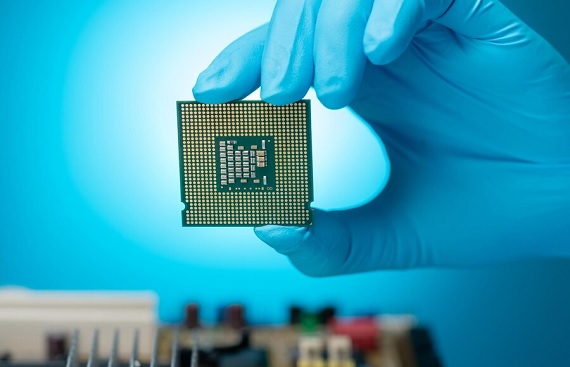US-India Initiative Proposes Measures to Strengthen India's Semiconductor Industry
By
siliconindia | Wednesday, 21 February 2024, 05:58 Hrs

In a bid to strengthen India's position in the global semiconductor value chain, the US-India Initiative on Critical and Emerging Technology (iCET) has released a report outlining key recommendations. The report emphasizes the need for collaborative efforts between the United States and India to advance semiconductor cooperation.
Among the recommendations is the creation of a pilot visa program to facilitate the exchange of skilled workers between the two countries. This initiative aims to support the semiconductor industry by ensuring a flow of talent and expertise. Additionally, the report suggests exploring partnerships under the CHIPS for America International Technology Security and Innovation Fund (ITSI) to further enhance collaboration.
To boost India's semiconductor-ready workforce, the report advocates for cross-sector partnerships with higher-education institutions. It also calls for ongoing consultation with stakeholders in the semiconductor industry to address challenges and foster growth.
The report, titled "Assessing India’s Readiness to Assume a Greater Role in Global Semiconductor Value Chains," was commissioned by the Semiconductor Industry Association (SIA) and the India Electronics and Semiconductor Association (IESA) under the iCET. It evaluates India's current semiconductor ecosystem and policy frameworks, offering insights to guide strategic development.
US President Joe Biden and Prime Minister Narendra Modi launched the iCET in May 2022 to enhance technological and defense cooperation between the two nations. The report identifies India's strong value proposition in the semiconductor industry and emphasizes the importance of favorable government policies.
The semiconductor industry, characterized by intense global competition, presents a significant opportunity for India to attract investment. The report recommends policy reforms to reduce the cost of doing business for semiconductor companies in India. This includes tax breaks for chip companies, streamlined customs administration, and expedited clearance times for imported goods.
John Neuffer, President and CEO of SIA, expressed confidence in India's potential, stating that with the right mix of government policies, the country's value proposition in the semiconductor industry can further strengthen. Ashok Chandak, President of IESA, highlighted India's expanding domestic market, developed design ecosystem, and supportive policies as key factors positioning the country for semiconductor manufacturing establishment.
